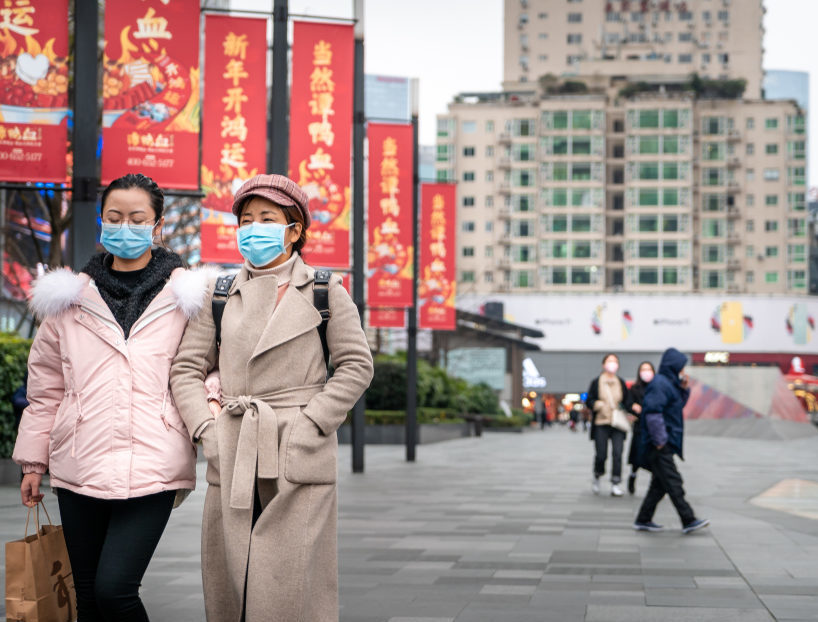RIO DE JANEIRO, BRAZIL – Although open criticism of China has become almost a refrain of Brazilian foreign policy during the first two years of President Jair Bolsonaro’s administration, China’s hunger for Brazilian products hit a record last year – and should grow even more in coming years.

The Chinese share in everything Brazil sells abroad has been growing, year after year, since 2015. But this escalation had been occurring at a slower pace: between 2018 and 2019, for instance, this share in exports increased by just over 1 percentage point. With the new coronavirus pandemic, however, the Chinese share exploded, rising 4 percentage points: from just over one-quarter to one-third of exports, reaching 32.3 percent in 2020.
In a year, sales to China rose from US$63.4 billion to US$67.8 billion (up 7% in nominal terms), according to data from the Ministry of Economy. This occurred although total Brazilian exports dropped from US$225.4 billion in 2019 to US$209.9 billion in 2020 as a result of the international crisis.
Uneven rebound
Two phenomena help explain the increased trade relations with China last year, says Welber Barral, a strategist at Ourinvest Bank and ex-secretary of national foreign trade. “Brazil exported more meat to China, as the swine fever there boosted demand for the product, and the amount of other basic products they demanded also rose in the second half of the year.”
The World Bank estimates that Brazil’s main trading partner’s GDP grew by 2% last year, while the world average is widely regarded as having dropped by 4.4%.
As a result of their country’s rebound, the Chinese have begun buying from the world again, stocking up on foodstuffs, and sales of Brazilian commodities have begun to react, boosting agribusiness, in spite of a year of global recession.
“China performed very well in the fourth quarter in 2020. It is one of the few countries that must have grown in the year, while in the US, the death toll is staggering and the pandemic is still out of control,” says Armando Castelar, coordinator of Applied Economics at the Brazilian Institute of Economics, Getulio Vargas Foundation (Ibre/FGV).
He recalls that the Chinese appetite for commodities that Brazil depends on for its export advantage – such as soybeans and iron ore – should also grow this year, given that World Bank projections estimate a 7.9% increase in the Asian country’s Gross Domestic Product (GDP) and some analysts are projecting a 9% growth.
Meanwhile, the US economy, the second main destination for Brazilian exports, may grow 6%, if President Joe Biden manages to put his US$1.9 trillion stimulus package into practice. “The largest part of growth in demand for Brazilian products, therefore, will come from China and our dependence will increase,” stresses Castelar.
Troubled relationship
Part of the friction between President Bolsonaro and the Chinese government is due to the Brazilian leader’s alignment with then-U.S. President Donald Trump, who failed to secure a second term in elections last year.
In one of his impromptu manifestations, Bolsonaro called the vaccine manufactured by the Butantan Institute in partnership with the Chinese Sinovac laboratory a “vacChina”; otherwise, he repeatedly discredited the coronavirus immunizer. Similar Bolsonarist statements prompted angered reactions from Chinese diplomacy throughout the year.
While the Chinese gained ground in Brazilian foreign sales, however, exports to the United States fell 27.6 percent, from US$29.7 billion in 2019 to US$21.5 billion in 2020, impacted by the disruption in international trade during the pandemic.
In late January, fearing that the attacks would delay the delivery of raw materials for the vaccines, Brazil’s president abruptly tempered his antagonism, and flattered the Chinese government on his social networks, thanking them for authorizing the shipment of raw materials.
“The switch in Brazil’s stance has been ongoing. It is true that it was compelled by the need to import raw materials to manufacture the vaccines against covid-19, but it is good that the government should reconsider its stance and place the country’s interests first,” adds Welber Barral.
“In fact, the Chinese economy has returned to its pre-pandemic level and is now the most dynamic. It is responsible for growth and, therefore, it is only natural that it demands more,” says economist Fabiana D’atri, Bradesco’s economic coordinator, who is also economic director of the China-Brazil Business Council (CEBC).
D’atri adds that China opened its economy earlier, managed to meet its own demand and then the global demand for products linked to the pandemic – masks, gloves, etc. – and later all equipment used for home office activities, particularly electronic equipment, cell phones, cables and headsets.
Analysts believe that China benefited two ways last year: first, because it quickly identified and confirmed the pandemic. Then, because it generated stimuli to address the crisis and still conquer markets. Brazil, in turn, joined the global trend of demanding goods linked to the pandemic, be it in health or technology.
“It is no coincidence that the value of freight from China has also exploded. Once again, what we can see is not Brazil dictating its exposure, but China dictating the pace not only for Brazil, but for the whole world,” says D’atri.

